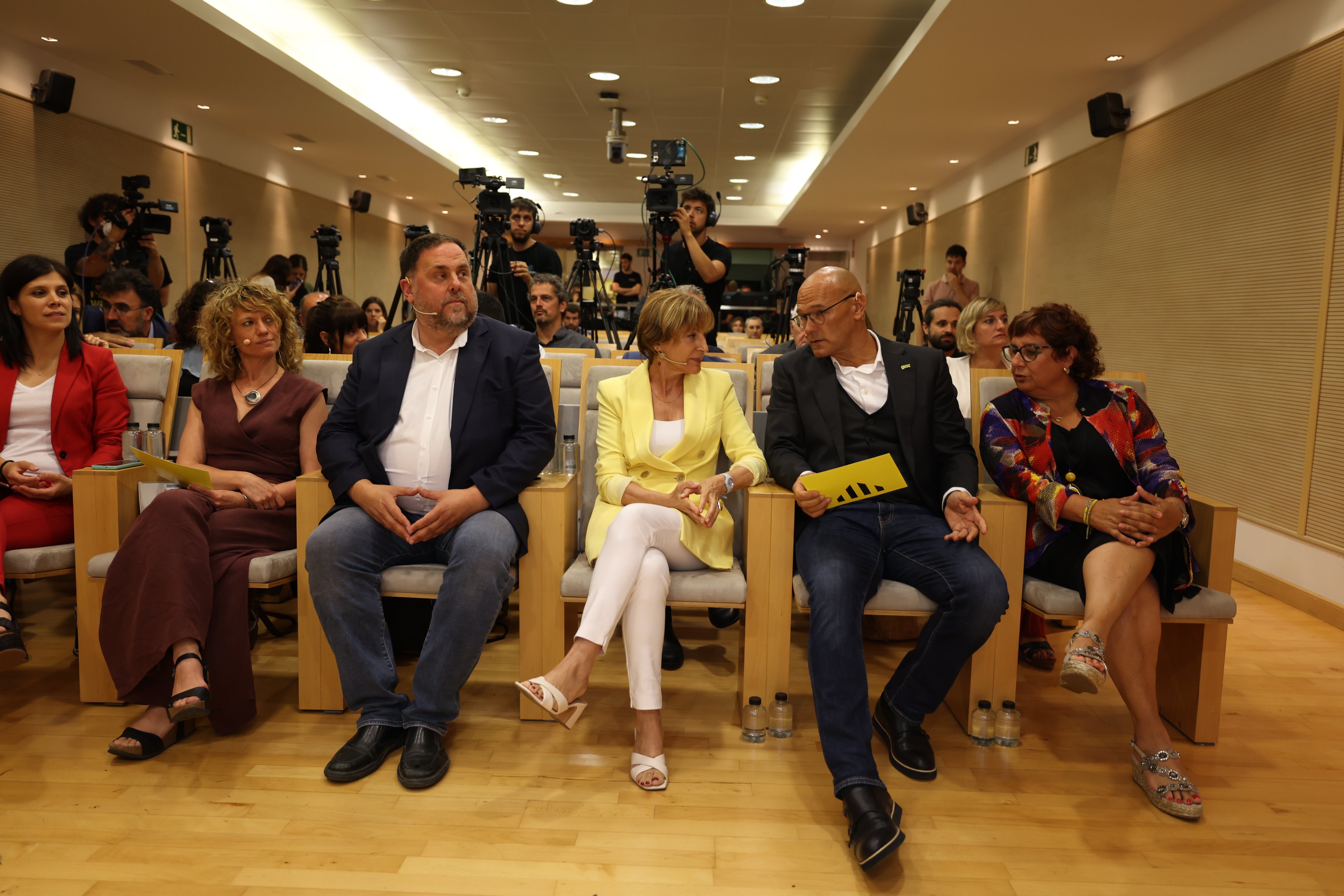The leader of the Catalan Republican Left (ERC), Oriol Junqueras, along with the former ERC government ministers Raül Romeva and Dolors Bassa, all three convicted of sedition in conjunction with misuse of funds for the events surrounding the 1st October referendum, have presented their submission to Spanish Supreme Court requesting that, in the review of their sentences, they be acquitted, arguing that if the Penal Code reform is applied to them, there is an "absence of criminal responsibility". And if the court considers that they committed the crime of misuse of funds, they assert, then the new "attenuated" version should apply - a legal text which the ERC party itself negotiated with the PSOE - because they assert that the Supreme Court convicted them for disloyal administration of funds and not for a crime involving misappropriation for profit as judge Pablo Llarena asserted in his interlocutory decree of January 12th, in which he updated the charges against president Carles Puigdemont and the politicians in exile. Llarena's version could involve a demand of up to 12 years in prison for president Puigdemont.
The speaker of the 2017 Catalan Parliament, Carme Forcadell, sentenced to 11 and a half years in prison for sedition, is also asking for her acquittal, as the crime for which she and the other eight Catalan political prisoners were punished - and for which they spent between three and four years in prison before receiving pardons - has disappeared.
"Disloyal administration"
In the defence submission from Junqueras and Romeva, presented on the last day possible and provided by ERC this Tuesday evening, the lawyer Andreu van den Eynde, expresses "absolute discrepancy" with the Supreme Court sentence that imposed 13 years' prison on the ERC leader and 12 years on the ex-minister Romeva, but from this judgement of the "proven facts" - which cannot be modified for this review - he bases his argument. In addition to expressing the intention of the legislator in carrying out the reform, the lawyer focuses on debating the misuse of funds offence that should be applied to those convicted over the referendum case, because, he says, it is the key to the sentence review. However, Van den Eynde also argues that once the sedition has disappeared, so must the misuse of funds because the judgement defined the relation between the two crimes as "in conjunction", that is, money was spent to hold a political referendum, an action which had been decriminalized.
The ERC lawyers also rule out that the crime of sedition can be replaced by the new crime of aggravated public disorder, as proposed by the public prosecutors and the state solicitors in the cases of the Catalan politicians in exile, and which, they seem very likely to once again propose for those convicted in the 2019 trial.
Call for a 4 year ban, with 3 already served
With regard to the crime of misuse of funds, lawyers Van den Eynde and Mariano Bergés, on behalf of Dolors Bassa, sentenced to 12 years in prison, state that in the sentence, the Supreme Court convicted them for disloyal administration of funds, which now includes the new crime of attenuated embezzlement (art. 433 of the Penal Code), and in particular section 2, which is the lowest form and is punished with 1-4 years in prison and a similar period banned from office; if it involved a serious or serious obstruction of public services, the jail sentence and ban could be up to 6 years. The pro-independence leaders are currently only serving their bans on office holding, as they were pardoned for their prison terms in 2020. Thus, under this interpretation, the 13 year ban on holding office which Oriol Junqueras is currently serving should fall to no more than four years, and he has already completed three. Similarly, Bergés explains in his submission, Bassa was convicted of aggravated misuse of funds due to the amount involved, since the expenditure was over 250,000 euros, but not due to other aggravating factors.
"This party argues for the inapplicability to the proven facts of any of the existing methods of misuse of public funds", affirms Junqueras's lawyer. And he recalls, that the court, under presiding judge Manuel Marchena, convicted them for disloyal administration, which under the earlier Penal Code reform of 2015, the PP had joined to the crime of misuse of funds. "The court understood the crime as disloyal administration of public assets that was committed by Junqueras for the purpose of carrying out a public referendum demanded by a part of the electorate and followed by a significant part of it, without there having been any evidence of it being used for profit", says Van den Eynde and he adds: "They were oriented towards the satisfaction of a political objective widely shared by a sector of the citizenry."
The lawyer Olga Arderiu has also asked the Supreme Court to review the sentence of the speaker of the Catalan Parliament, Carme Forcadell, because under review, the Penal Code reform is "more favourable" than it was previously, and she requests the dropping of the sentence.
For his part, the former president of Òmnium Cultural, Jordi Cuixart, told the Supreme Court this Tuesday not to review his sentence, as it will be done by the European Court of Human Rights (ECHR), where he has denounced the violation of rights fundamental by this Spanish court.

